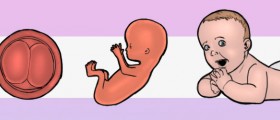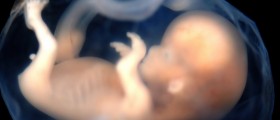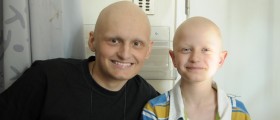
Alcohol is a toxin and that is the fact. While drinking, it rapidly reaches unborn baby through bloodstream and placenta. Too much alcohol can cause permanent damage to the cells of a developing fetus and may cause problems during pregnancy problems like miscarriage or premature birth.
Alcohol during pregnancy can change the way a baby's face, organs and brain. It can also affect the nervous system which is why a child may have learning difficulties and permanent problems with movement and further coordination (BMA 2007: 2). Alcohol intake during pregnancy may cause fetal alcohol syndrome (FAS) and fetal alcohol effects (FAE). Fetal alcohol syndrome is very dangerous because it may cause different disabilities in a baby development: physical and mental disabilities as well.
Alcohol during the pregnancy passes onto the placenta to fetus. The brain and central nervous system reacts badly on alcohol and baby may have permanent damage. But there is a minimum of alcohol allowed during the pregnancy.
Alcohol impairs baby’s growing brain and nervous system, which may interfere with physical, mental or developmental problems. And how big damage is may depend from other conditions such as: mother's overall health, the time when the alcohol is used as resources that mother uses, frequency and amount of alcohol usage.
Alcohol is teratogen and can inflict birth defects in the fetus. And the greater amount of alcohol pregnant woman use, the greater chance is for a baby to get FAS or FAE. Early pregnant drinking alters the facial features of fetus, bones, heart or central nervous system. Not knowing about effects of alcohol and its role as a teratogen on a growing fetus increases possibility to develop FAS or FAE. The physical effects of FAS are central nervous system abnormalities, slower development of the baby, altering of fetus facial features and problems with brain development.
Baby’s central nervous system abnormalities include learning disabilities, intellectual damage, behavioral problems, or delayed grown. Children with FAS speak or walk in later period of growth, they have anxiety, nervousness, hyperactivity, no attention ability.
The facial malformations of face features with FAS children are drooping eyes, flattened cheekbones, thin upper lip or a sharp groove of the upper nose or lip. The other kind of defects may create internal organs malformation, and here there are hearing problems and visual impairment included. Also later in life children with FAS are not having a good judgment and are having and are poor decision makers, with variety of other difficulties.

















Your thoughts on this
Loading...